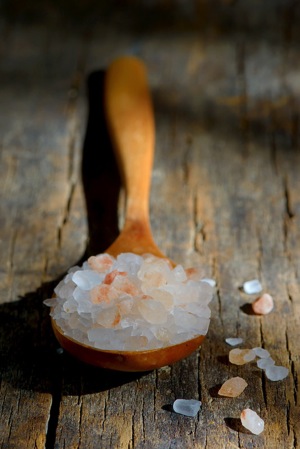
Aging people have long since been resigned to living out their latter years avoiding salt and eating a bland, tasteless diet. But new research shows the risks of salt may be overblown. Also, if you have low blood pressure, salt can actually serve as a boost to your health.
Salt has been recognized as a precious commodity throughout human history, even serving as a form of legal currency. Not only is it vital to our health, it also preserves foods and, as anyone who has accidentally cooked a meal without salt can attest, it is vital to making food taste good.
However, salt came to be overused in the industrialization of food. This led to concern over a link between increasing rates of high blood pressure and a higher rate of heart disease risk.
However, new research suggests we don't have to abandon this ancient culinary delight. A study of almost 3,000 older people in their 70s found no significant risk for cardiovascular disease, heart failure, or death in those who consumed about a teaspoon of salt a day versus those who didn't. Current health guidelines call for consuming no more than 1,500 mg of salt a day for those over 50, and 2,300 mg (about a teaspoon) for those under 50. The average American consumes almost 3,500 mg, thanks to our fast-food culture.
Of course, if you have high blood pressure, this is not license to eat lots of salt as that can worsen the situation. It's important to also consider the role of potassium, which lessens the effects of salt. The recommended daily intake of potassium is 4,700 mg a day. Foods high in potassium include sweet potatoes, greens, bananas, citrus fruits, and more. Also, when it comes to blood pressure, other important factors are exercise and reducing sugar and carbohydrate intake if you have insulin resistance.
High blood pressure or not, it's important not to over consume the heavily salted processed foods that contain chemically laden industrialized salt.
Salt is beneficial if you have low blood pressure
Natural salt has benefits that include trace minerals and being free of chemical additives found in conventional salt. If you have low blood pressure, eating plenty of salt is especially important to boost blood flow to your tissues and brain. A blood pressure of 120/80 is considered healthy and if the upper or lower number deviates by 10 your blood pressure is in an abnormal range.
Low blood pressure is associated with adrenal fatigue. The adrenal glands produce stress hormones and help regulate blood pressure. Many people today have fatigued adrenal glands thanks to chronic stress, poor diets, chronic inflammation, and more. Symptoms of adrenal fatigue include constant tiredness, low blood sugar, and low blood pressure.
In addition to salt, certain nutritional compounds support adrenal function and thus healthy blood pressure. Ask my office for more information on how to support healthy blood pressure.



Latest from the Blog
The Death of Red Dye #3
January 15, 2025What Is Red Dye No. 3? Red Dye No. 3, or Erythrosine, is a synthetic food color derived from coal tar. It was first approved by the FDA in the 1950s and quickly became one of the most popular artificial colors in food and cosmetics. Red Dye No. 3 was used in everything from candies, […] Read more
Latest from the Blog
Do You Know What Is In Your Protein Powder?
What’s Really in Your Protein Powder? Understanding the Risks Protein powders are a staple in many health-conscious diets, from athletes seeking muscle recovery to those simply aiming to boost their daily protein intake. With a wide variety of options available, choosing the right one can feel overwhelming. However, recent findings have raised concerns about what’s […] Read more